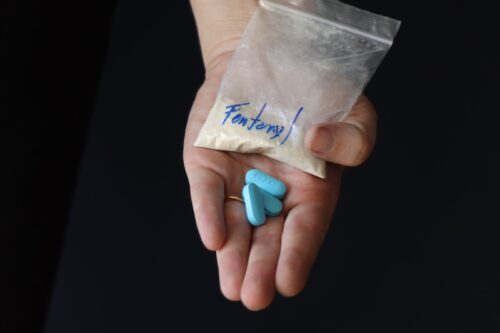Home » Weight Gain From Aripiprazole Same as Risperidone
Weight Gain From Aripiprazole Same as Risperidone
November 21, 2019
From The Carlat Child Psychiatry Report
Pavan Madan, MD
Dr. Madan has disclosed that he has no relevant financial or other interests in any commercial companies pertaining to this educational activity.
Review of: Schoemakers RJ et al, J Child Adolesc Psychopharm 2019;29(3):192–196
Many providers prefer aripiprazole over risperidone for young patients due to observed lower incidence of weight gain. This is supported in studies with follow-up of less than 3 months. However, does aripiprazole fare better with long-term use?
Researchers reviewed records of children and adolescents treated with aripiprazole or risperidone for at least 12 months at a Dutch mental health organization between 2008 and 2015. Only 89 of 874 patients on risperidone and 42 on aripiprazole met the inclusion criteria as over 80% of the charts had missing baseline and/or follow-up data.
BMI z-scores (age- and sex-adjusted BMI) significantly increased for both medications over 12 months. The increase was marginally lower for aripiprazole (0.30, 95% CI = 0.07–0.53) than for risperidone (0.37, 95% CI = 0.21–0.53), but not statistically significant (p = 0.97). Of note, the aripiprazole group had a higher BMI-z score at baseline (0.18) compared to the risperidone group (-0.33), possibly as aripiprazole is preferred over risperidone for overweight kids.
The authors predicted that an 11-year-old boy with a BMI of 16.9 at baseline would have a predicted BMI of 18.2 with aripiprazole use for 12 months and 18.4 with risperidone, whereas that same boy would have a BMI of 17.5 without medications for that year.
CCPR’S TAKE
In this study, using aripiprazole to avoid weight gain was fruitless. The small sample size dampens our confidence in the results, but BMI-z scores offer a more accurate understanding of weight gain. If we must use these medications, “old-school” measures like packing lunch for school and eating dinner with the family, plus reducing fast food and screen time, can have an enormous positive impact on a child’s physical and mental well-being. Periodic assessment of BMI and metabolic profile should be routine, with dietary counseling and CBT where appropriate. Among pharmacological interventions, adjunctive metformin has the best data, followed by topiramate.
Child PsychiatryMany providers prefer aripiprazole over risperidone for young patients due to observed lower incidence of weight gain. This is supported in studies with follow-up of less than 3 months. However, does aripiprazole fare better with long-term use?
Researchers reviewed records of children and adolescents treated with aripiprazole or risperidone for at least 12 months at a Dutch mental health organization between 2008 and 2015. Only 89 of 874 patients on risperidone and 42 on aripiprazole met the inclusion criteria as over 80% of the charts had missing baseline and/or follow-up data.
BMI z-scores (age- and sex-adjusted BMI) significantly increased for both medications over 12 months. The increase was marginally lower for aripiprazole (0.30, 95% CI = 0.07–0.53) than for risperidone (0.37, 95% CI = 0.21–0.53), but not statistically significant (p = 0.97). Of note, the aripiprazole group had a higher BMI-z score at baseline (0.18) compared to the risperidone group (-0.33), possibly as aripiprazole is preferred over risperidone for overweight kids.
The authors predicted that an 11-year-old boy with a BMI of 16.9 at baseline would have a predicted BMI of 18.2 with aripiprazole use for 12 months and 18.4 with risperidone, whereas that same boy would have a BMI of 17.5 without medications for that year.
CCPR’S TAKE
In this study, using aripiprazole to avoid weight gain was fruitless. The small sample size dampens our confidence in the results, but BMI-z scores offer a more accurate understanding of weight gain. If we must use these medications, “old-school” measures like packing lunch for school and eating dinner with the family, plus reducing fast food and screen time, can have an enormous positive impact on a child’s physical and mental well-being. Periodic assessment of BMI and metabolic profile should be routine, with dietary counseling and CBT where appropriate. Among pharmacological interventions, adjunctive metformin has the best data, followed by topiramate.
Issue Date: November 21, 2019
Table Of Contents
Recommended
Newsletters
Please see our Terms and Conditions, Privacy Policy, Subscription Agreement, Use of Cookies, and Hardware/Software Requirements to view our website.
© 2025 Carlat Publishing, LLC and Affiliates, All Rights Reserved.


_-The-Breakthrough-Antipsychotic-That-Could-Change-Everything.jpg?1729528747)



